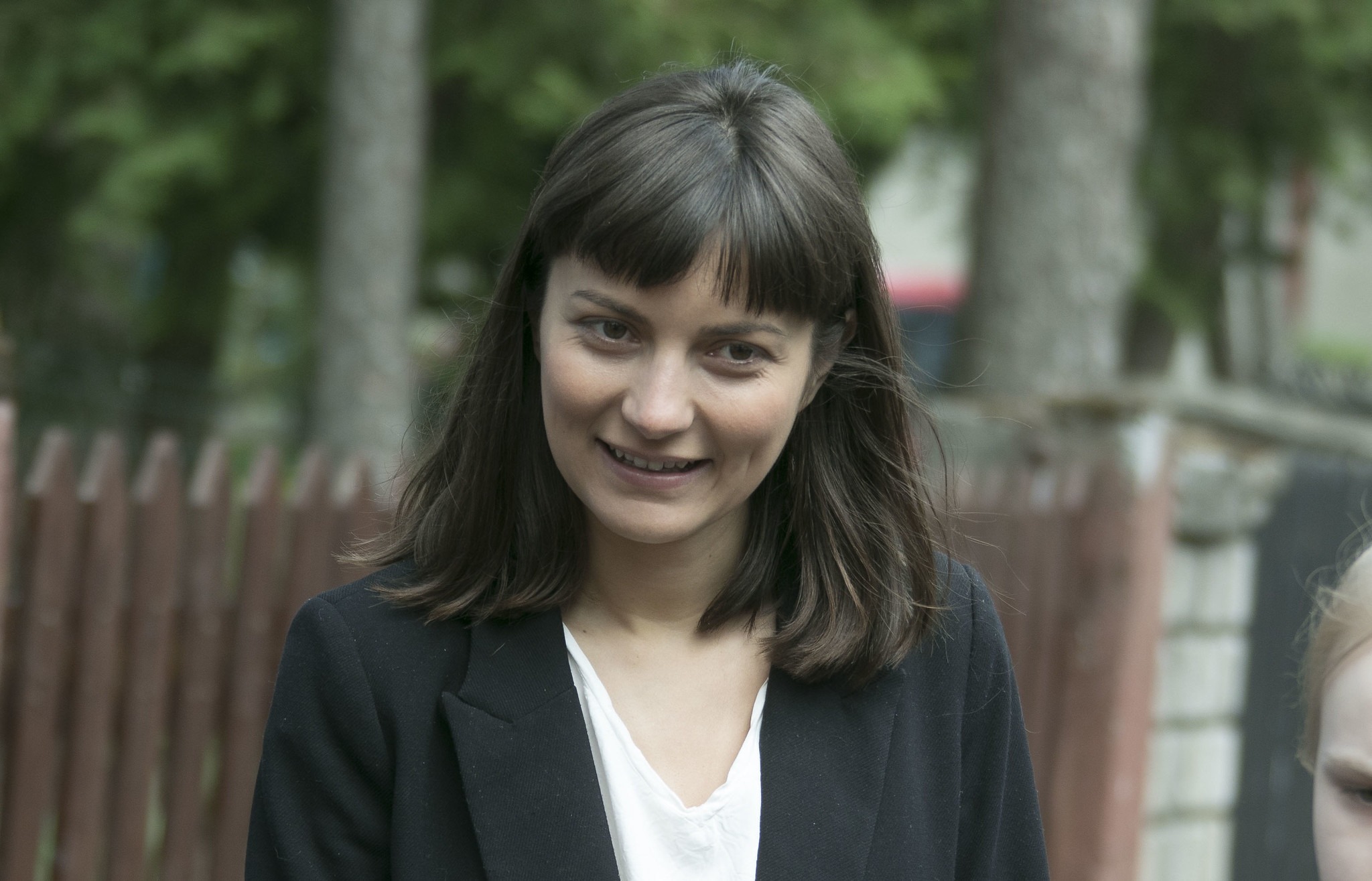
Key Insights:
A wave of social media activity swept through Lithuania in March, with highly diverse topics trending. According to a social listening platform, Awario, the following stories captured the most attention:
- Russia’s ongoing war against Ukraine, emphasising Ukraine’s limited ability to hold its positions despite the slowing Russian offensive;
- the resignation of former and consideration of new candidates for the Minister of National Defence post;
- the death toll of war victims presented by the Gaza Health Ministry;
- the Constitutional Court’s decision that the Istanbul Convention does not contradict any provisions of the Constitution of Lithuania;
- the Russian presidential elections, noting the queues to vote in Europe and arrests in Russia;
- the release of Šarūnas Stepukonis, a former BaltCap Infrastructure Fund partner suspected of embezzling and gambling away about EUR 40 million of the fund’s money, and his granting the prosecutor’s request to fit a GPS device to his leg, and
- the assault of the late Russian opposition leader Alexei Navalny’s long-term aide Leonid Volkov with a hammer in Vilnius
- the Conservatives MP Justas Džiugelis resigning his leadership of the Committee on Social Affairs and Labour amid reports of his ties to a gambling lobbyist;
- the funeral of Alexei Navalny in Moscow;
- Hungary finally ratifying Sweden’s bid to join NATO.
Kremlin-backed outlets in Lithuania churned out a constant flow of criticism against the government. Analysis of Kremlin-affiliated media using media monitoring tools shows that domestic affairs dominate content and generate the most interest. Kremlin-aligned outlets targeted specific politicians, such as Justas Džiugelis, analysing his involvement in financial misconduct or broadly criticised the whole government, blaming it for “the degradation of the state”. Kremlin-aligned media sources continued to dig deeper into the “BaltCap” financial scandal of misappropriating millions of euros, ironically claiming that “there’s no one guilty of it in Lithuania. Pro-Kremlin outlets also reviewed the candidates for the Minister of National Defence post and continued to explore the resignation of the former incumbent, Arvydas Anušauskas. They also commented on the potential changes to eleventh-graders (aged 16-17) taking the recently introduced intermediate examinations, pointing out that the Polish Union had already held a demonstration about the situation in minority schools, asking Conservatives [one of the parties currently in power along with two liberal groups] “not to incite discord”.
During this reporting fortnight, an important achievement was accomplished within the field of countering disinformation in Lithuania: the Delfi portal became the first media outlet in Lithuania to be confirmed as a member of the prestigious European fact-checking organisation EFCSN (European Fact-Checking Standards Network). Only disinformation and fact-checking organisations that meet the network’s professional standards, adhere to the highest standards of methodology, ethics, and transparency, and thus serve the public interest can join this network. EFCSN aims to support and promote the highest standards of fact-checking and to build professional and long-term relationships among the European community of independent fact-checkers. As the representative voice of Europe’s independent fact-checkers, the network aims to use its collective power to hold governments, internet companies, and others accountable and to make their actions against disinformation more transparent, proportionate, and effective. After evaluating Delfi’s application, the evaluators and board members concluded that it applies incredibly high journalistic standards when checking facts in both Lithuanian and Russian.
Overview of findings:
Overview of findings:
- A total of 544 articles (compared to 527 articles throughout February) were scrutinised from four Kremlin-aligned media outlets still actively operating in Lithuania.
- And a well-known participant in anti-government protests, Antanas Kandrotas, publicly known under the nickname Celofanas (Cellophane), was again among the most active on the Facebook platform. On his page “Celofanas LIVE”, he managed to maintain a notable pace, publishing 51 posts throughout March. As it may sound not a considerable number, it is worth reminding that Celofanas is imprisoned at the moment, and his page still manages to maintain such activity, as the majority of posts and live videos feature his companions.
- The most engaged Facebook post on this page during the reporting month was a live video from the courtroom, where Kandrotas himself presented a painting he made in the jail. The picture was auctioned, and in the video description, it was promised that “all of the money collected for this painting will be transferred to Kandrotas Fund that helps families to fight against children’s rights”. Commenters supported not only his painting skills but also the positivity he “manages to maintain despite the circumstances”. The live video has been watched over 33K times.
- However, the post of Oleg Surajev, one of the most prominent pro-Ukrainian activists in Lithuania, featuring a scene from this video ended up being even more engaged than the original. Surajev didn’t hesitate to mock Kandrotas using a screenshot from the previously described video with the headline “Pablo Picasso – Blue period”. His followers have joined his side, making jokes about not only his painting skills but Kandrotas and his position in general.
- Data from the Awario media monitoring tool showed that the topic of Russia’s war against Ukraine was way more engaged and reached by the Lithuanian audiences compared to the month of February. Daily distribution of content within Lithuanian media is visible in the graphs below. Content considering Russia’s war against Ukraine resulted in over 11K mentions throughout the month, as well as over 19M reach (see below). Both of the numbers seemingly exceeded data from the previous month. Latterly, many discussions, fears, and, therefore, speculations appear on social media considering possible war scenarios, and the visibly grown numbers of mentions and reach only confirm that. Unfortunately, the whole situation gives malign actors an easily manipulated message to spread and sow discord across the country.
Story of the month: Resignation of the Minister of National Defence Arvydas Anušauskas
During this reporting period, Lithuanian politics were shaken by the news: the sudden resignation of National Defence Minister Arvydas Anušauskas. A brief statement from the government’s press office confirmed the resignation but offered no explanation for his departure. Interestingly, according to the president’s agenda of appointments, President Nausėda had a meeting scheduled with Anušauskas on his agenda for the following day.
The initial wave of speculation was started on the evening of Friday 15th March by a well-known journalist, Edmundas Jakilaitis, who posted a very concise message on his Facebook feed: “Thanks to Arvydas Anušauskas. We’ll see how Laurynas Kasčiūnas [Lithuanian MP] will do” (see screenshot on the upper right). All the comments on the post were trying to figure out what was happening and what Jakilaitis meant, asking him for some context and speculating whether Anušauskas was actually resigning and whether Kasčiūnas was being considered for the post. Comments such as “I cannot understand, what was your motivation for writing such a post?” appeared (see lower right) and gained traction, as commenters were too confused to understand the actual reasoning behind the post. However, the comment receiving the most engagement emphasised this alleged promotion and ironically stated: “Kasčiūnas – minister?? Wow, Lithuania is a courageous country when choosing its ministers” (see second screenshot on the left).
This post by Jakilaitis led to a fiasco centered on the ruling party’s public communication. There was no immediate reaction to his post either from the former minister Anušauskas or from the government as a whole. Well-known journalist Andrius Tapinas noticed the prolonged silence and wrote a post where he did not hesitate to express his ironic amusement and disappointment over the situation, stating that a “new bottom of this ruling government has been reached”. Emphasising the intense conditions, as there is “a war going on nearby, and the army representatives are trying their very best to reassure people not to panic”, he commented that this “news bomb” almost broke the internet. In a comment under the post, generating the most interactions, Tapinas uploaded a screenshot of an article’s headline (see on the upper right), quoting Prime Minister Šimonytė, “Russia tries to sow panic in Lithuania”, to which he added an ironic response “you saying?”. He also noticed the belated responses from Anušauskas himself and PM Šimonytė. Tapinas criticised the fact that “again, no one from the whole government stepped out and stopped the crisis”. Hundreds of commenters agreed with Tapinas’ stance, harshly criticising the entire Conservatives party and their poor communication and pointing out that there are “hardly any bottoms left to hit through”. Commenters also added, “This year, I’ll simply cry at the ballot box [at the upcoming elections], as everyone messed up so much, that the only solution left is to cry” (see screenshot lower right). This signals disappointment in specific politicians and the whole political situation in general, as well as showing a possible indifference towards voting this year. Tapinas’ post was the social media piece with the most engagement during the reporting month, generating over 10,000 interactions on Facebook.
The resignation incident provided internet users with the perfect material for mocking the government, as they quoted Jakilaitis’ phrase in various ways. For a few days, “Thanks to x. We’ll see how y will do” became the most used meme format on Lithuanian social media. An ironic post by pro-Ukrainian activist Oleg Surajev was among the posts receiving the most engagement, stating: “Thanks to Gitanas Nausėda [current president of Lithuania]. We’ll see how Ignas Vėgėlė [populist presidential candidate] will do” (see screenshot on the right).
With three different elections approaching this year, the anti-government narrative is visibly on the rise and generating increased activity. The abrupt and unexplained right away resignation of National Defence Minister Arvydas Anušauskas is a case in point and may have a significant impact on the government’s stance in the race for parliamentary seats and their candidates for the office of president. The coming weeks will be critical as the government attempts to manage the fallout and regain public trust. Their success, or failure, in doing so could be a bellwether for their performance at the ballot box later this year.









